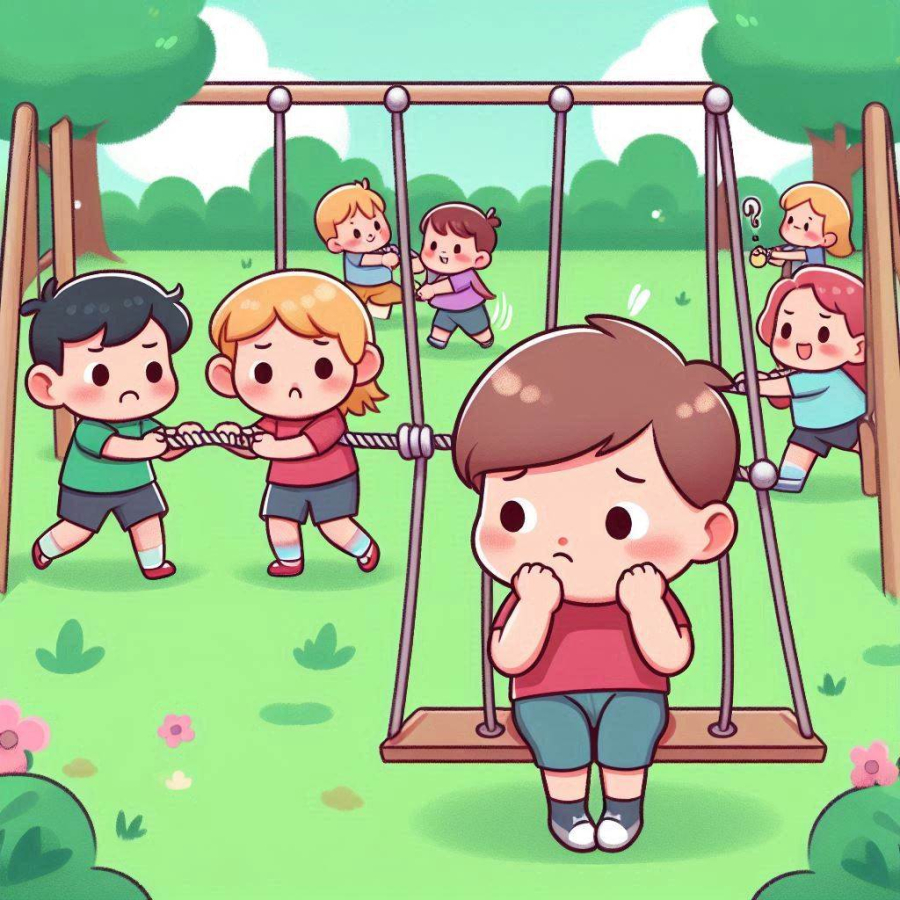Low Self-Esteem in Children: Symptoms and Parental Guidance
Children’s Hesitance to Express True Feelings
At a kindergarten gate, a minor conflict erupted between two toddlers. Despite being the victim of the altercation, the child refrained from crying and instead pulled their mother’s hand, reassuring her, “Mom, I’m okay. Let’s go. Don’t be upset…” The child not only concealed their true emotions but also prioritized their mother’s well-being, an uncommon behavior for their age.
Typically, children express emotions effortlessly: they laugh in joy and cry in distress. They don’t disguise or inhibit their feelings and often display them with candid innocence. However, some children exhibit the opposite, shying away from expressing their emotions out of fear that others may reject or dislike them. This reluctance signals that the child may be struggling with low self-esteem.

Children’s hesitation to express their true feelings can indicate low self-esteem.
Refusal to Decline Requests
Certain personality types can be characterized as “overly accommodating,” willing to endure unfair requests from others rather than decline. Unfortunately, children with this tendency often fail to form genuine friendships and may even become targets of ridicule or entertainment for others. This issue should be addressed.
To encourage children to express their genuine feelings and thoughts, we must empathize and respond promptly to their emotional cues. By doing so, children will sense that their emotions matter and that they don’t have to resort to emotional suppression to mindlessly please others.

Children with these personalities often struggle to establish genuine friendships.
Reluctance to Compete
Some children hesitate and lack assertiveness when it comes to retrieving their toys from others, despite having a legitimate claim to them. They dread confrontation and often feel powerless in such situations.
This lack of assertiveness often stems from a weakened sense of self-worth and doubt in their ability to succeed. When a child hesitates when challenged or faced with competition, it could suggest that they are struggling with self-esteem.
For timid children, participating in athletic or competitive events can be an overwhelming obstacle. They doubt their abilities, lacking the courage and competitive spirit required to face challenges. Often, these children will seek ways to opt out or avoid any potential competitive situations.

This lack of assertiveness often stems from a weakened sense of self-worth.
Parental Guidance for Low Self-Esteem
When parents detect signs of low self-esteem in their children, they can implement specific guidance strategies:
Firstly, parents should prioritize spending quality time bonding with their children. Children often struggle with feelings of loneliness when isolated from their parents, which can impact their emotional well-being. Stability and emotional comfort are directly linked to self-esteem, so establishing a close-knit relationship and engaging with their children on a positive level is crucial.
Childhood comes only once, and parents should seize every opportunity to nurture it, making it the fondest time for their children.
Secondly, support and encourage children in their endeavors. Parental love does not equate to doing everything for a child; this approach can hinder their development of self-reliance. Instead, parents should encourage them, motivating them every step of the way, and allowing them the freedom to express their opinions, fostering a sense of boldness and confidence.
Thirdly, provide ample praise when children do right. Children who are not acknowledged or praised may develop issues with self-worth, communication, and difficulty forming relationships. It can also lead to a decline in their enthusiasm for learning and participating in activities. In severe cases, children may become overly sensitive or aggressive. A timely and well-placed compliment can have a remarkable impact, building a child’s sense of confidence, empathy, and strength to face challenges.































